Grief and mourning don’t follow a set timeline and they don’t have an ‘expiration date.’ The loss of a loved one affects all of us deeply and profoundly and can last for years and sometimes even decades. And losing a child is beyond devastating. While your family and friends can be a huge source of strength and support, they can also sometimes suffer from compassion fatigue. Hearing their unfiltered thoughts can hurt, even if they regret their words later.
An anonymous mom who miscarried turned to the AITA online group for advice after a falling out with her family. She opened up about how she left her father’s birthday dinner early after overhearing her pregnant sister’s comments about the miscarriage. However, the author later managed to reconnect with her loved ones. Read on for the full story, including a very important update. Bored Panda has reached out to the author, and we’ll update the article as soon as we hear back from her.
Miscarriage is one of the most painful things that can happen to a parent

Image credits: Getty Images/Unsplash (not the actual photo)
A woman who lost her baby shared how she and her family had a falling out after her sister made a cruel comment behind her back
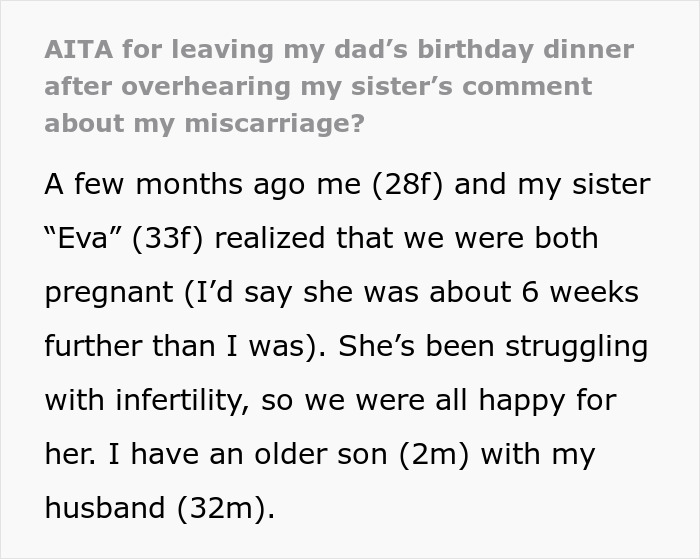
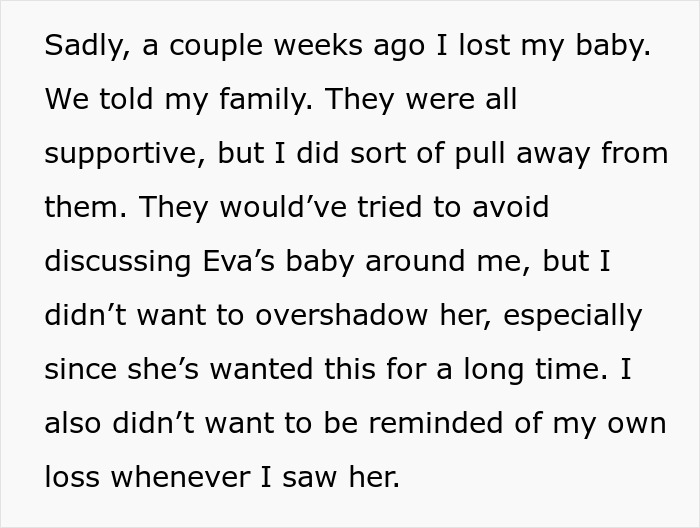
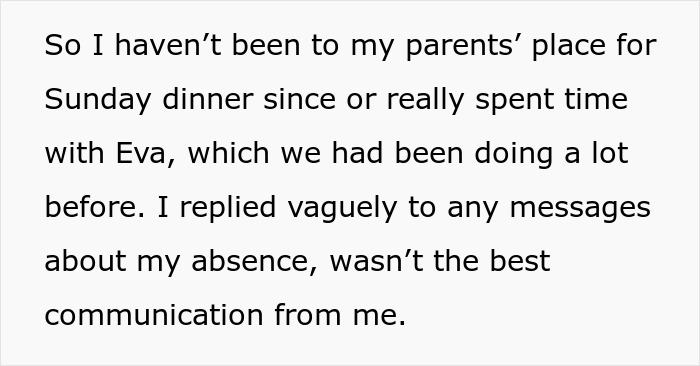
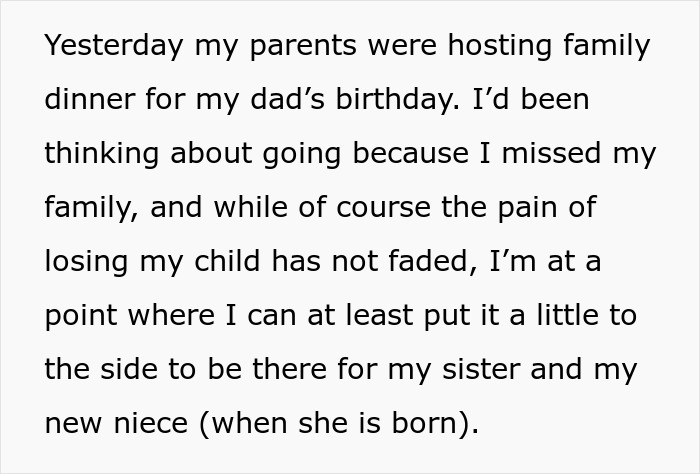
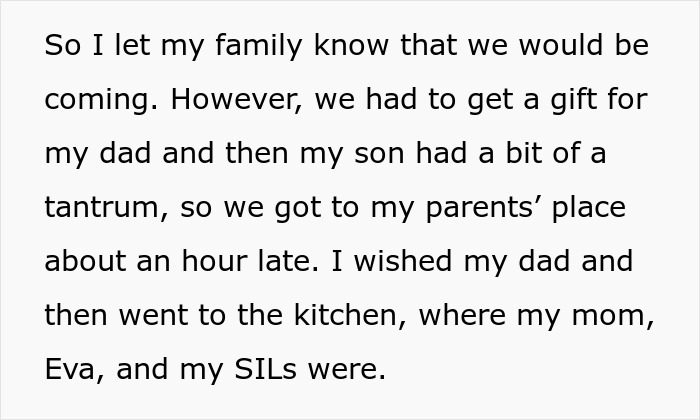
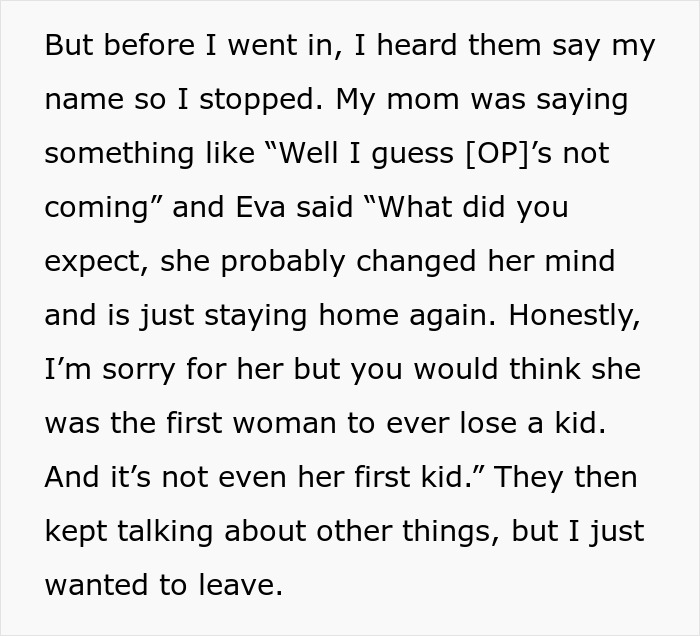

Image credits: Curated Lifestyle/Unsplash (not the actual photo)
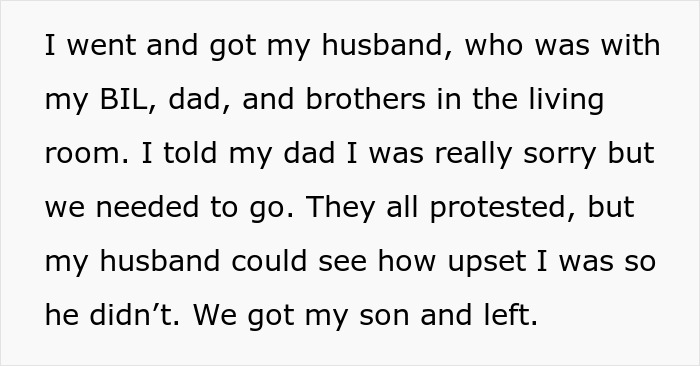

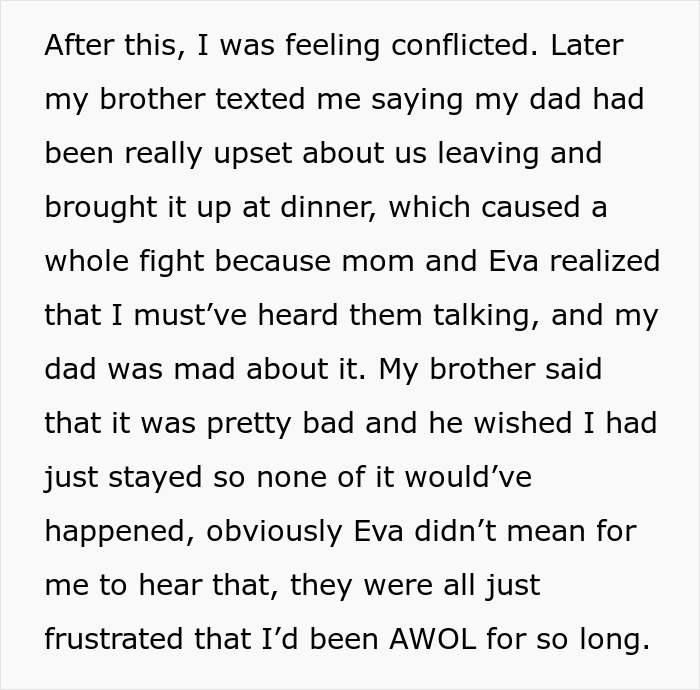

She then added some more information about her family situation


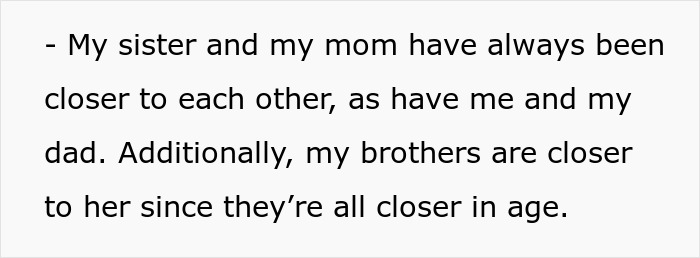

Image credits: Devin Nelson/Unsplash (not the actual photo)


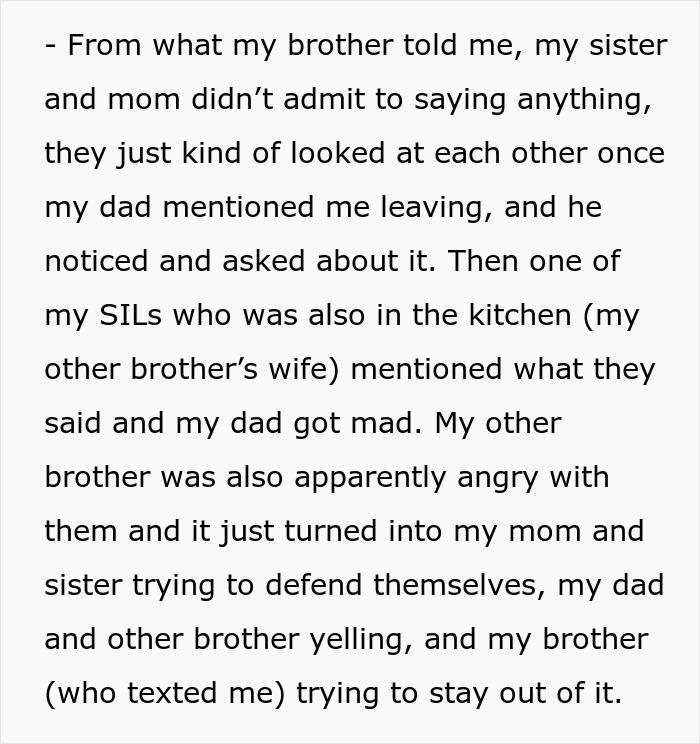
Image credits: throwra_71839
In some cases, even the most supportive people can ‘burn out’ after dealing with stressful and traumatic situations for a long time

Image credits: Getty Images/Unsplash (not the actual photo)
Something to keep in mind is that even the most patient, well-intentioned, kind, caring, and loving people in the world can get exhausted from emotionally engaging with people in need of support. It’s a human trait, and nobody is ‘immune’ to this, no matter how resilient they might be.
WebMD describes compassion fatigue as the physical, emotional, and psychological impact of helping others in stressful or traumatic situations. It’s a general sense of fatigue or dissatisfaction and can be mistaken for burnout.
Compassion fatigue is also known as secondary stress reaction, secondary traumatic stress, and secondhand shock and is often linked to careers and positions where a person constantly deals with stressful situations. Medical professionals, first responders, therapists, and legal professionals are often at risk.
For example, a therapist can develop compassion fatigue after providing help to someone experiencing grief, severe issues, or depression. Threats, heavy workloads, working in dangerous environments, and being exposed to traumatic sights can also exacerbate the problem.
Furthermore, experiencing or caring for someone who has experienced the illness or death of a child can also lead to compassion fatigue.
There are no quick or easy solutions for this, but focusing on self-care can alleviate the issue bit by bit. Getting enough sleep, eating well, drinking plenty of water, staying active, meditating, and seeking professional help can all reduce the sense of fatigue.
There is no ‘right’ or ‘wrong’ way to grieve. People mourn differently and can have different needs

Image credits: Valeriia Miller/Unsplash (not the actual photo)
Different people grieve differently. There are no ‘rules’ for how mourning ‘should’ happen. What you hear in popular culture about the five stages of grief (denial, anger, bargaining, depression, and acceptance) might be accurate for one individual and completely miss the mark for someone else.
So, it’s best not to make any assumptions about the grieving person beforehand. Instead, talk to them and see what they really need. Someone might ask for space. Someone else might want to talk about their loss to process what happened and to honor their loved one’s memory. Still, others might want to be distracted by taking part in various social activities.
It’s important that you try to involve the mourner in your life to show them that you’re still there for them and haven’t forgotten about them. A dinner invitation or a simple walk in nature can be good for them and get them to come out of their shell just a bit. Other times, physically sitting with the person in complete silence might be what they need.
Or they might require more hands-on support, such as you coming over to their home and physically helping them do all the chores that have piled up. That means doing the laundry, washing the dishes, vacuuming the floors, taking out the trash, letting some fresh air into the home, and maybe even cooking a hearty and wholesome meal.
It’s important to check in with the person who has lost their loved one even years after the tragedy struck

Image credits: Gabriel Ponton/Unsplash (not the actual photo)
The environment in which you live affects you to a greater extent than you think. Doing these small tasks can temporarily reduce some feelings of anxiety and depression. Meanwhile, something else that bolsters your emotional and mental health is spending time with the people you love. Deep, positive relationships make you bounce back from the challenges that life throws at you better than if you were completely alone or surrounded by people who drain you.
In a similar vein, people can react very differently to loss. One person might cry while another might put on a stoic front. But just because someone isn’t shedding tears does not mean that they’re not in pain.
Grief can and does diminish over time, but you may need the help of a grief counselor or therapist specializing in trauma for additional support. There is nothing ‘weak’ about asking for help when you need it.
While many people are keen to support someone at the start of their mourning period, the effort they put in can wane over time. It’s important to check in during important anniversaries and even years after the loss because the person may still be grieving. And even if they have learned to live with the absence of their loved one, they’ll still appreciate your concern.
How have you supported your grieving loved ones in the past, dear Pandas? Have you known anyone who has miscarried or lost a child? What did you do to help them during that devastating time? When you’ve mourned in the past, did you appreciate being given more space or did you want to be around your family and friends more?
As the story spread across the internet, the author interacted with some commenters, offering more context
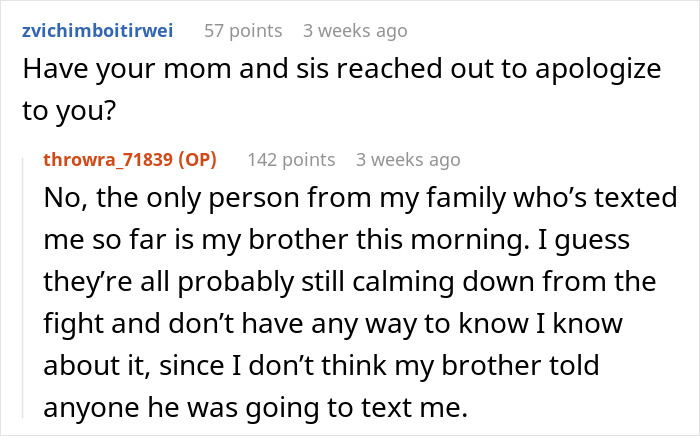
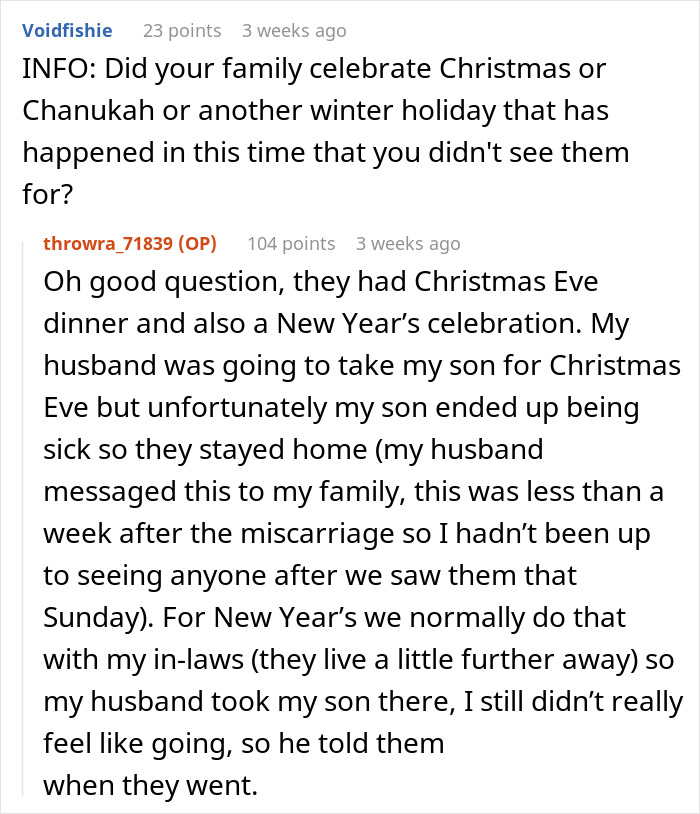
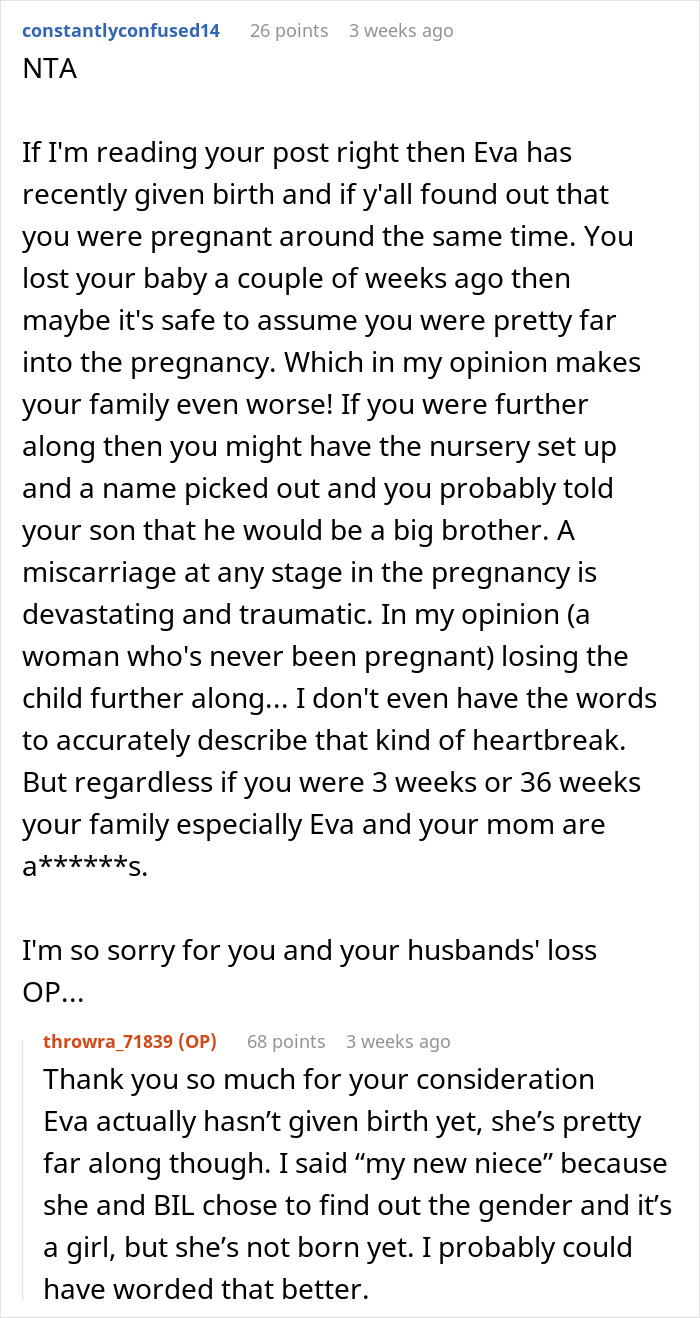
Most people who read the woman’s story said that she was right to be upset by her sister’s comments



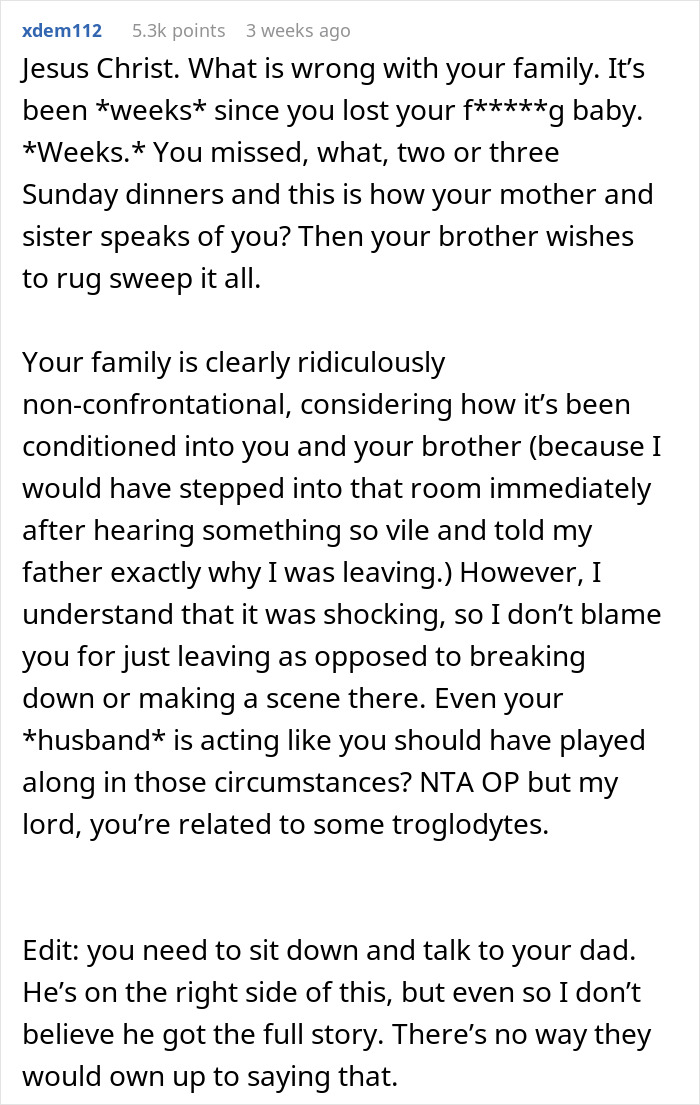
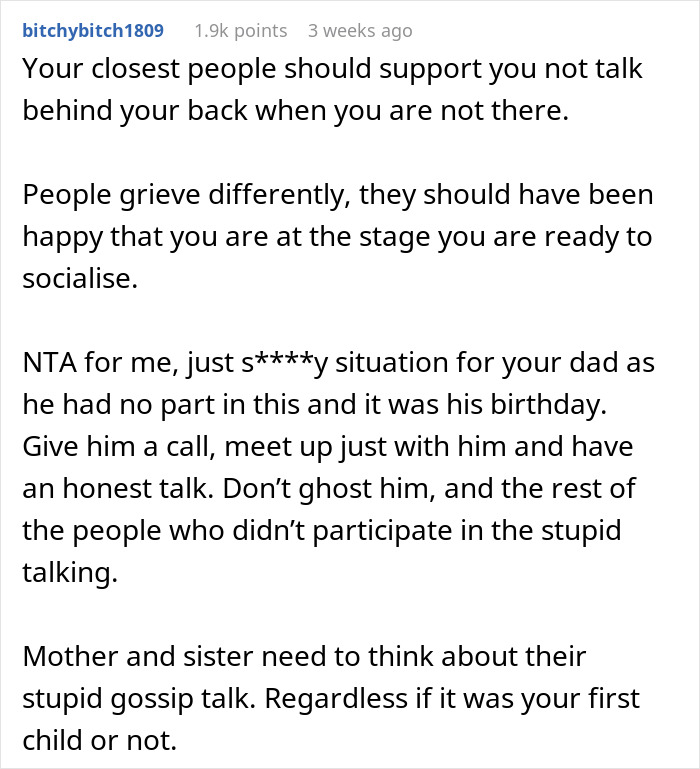
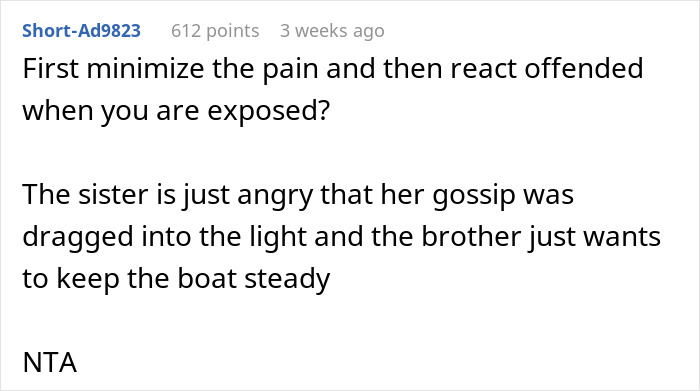
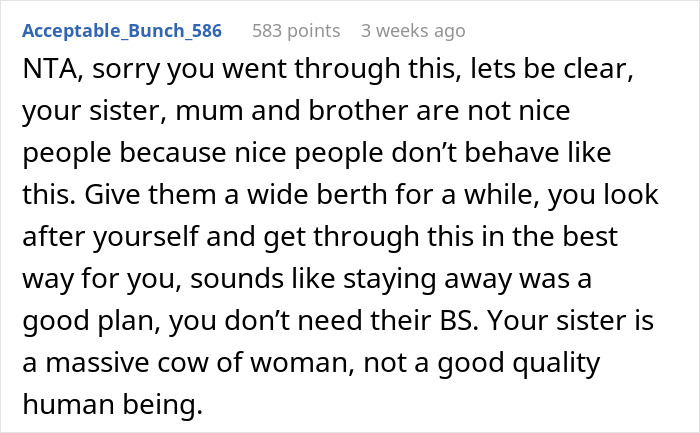

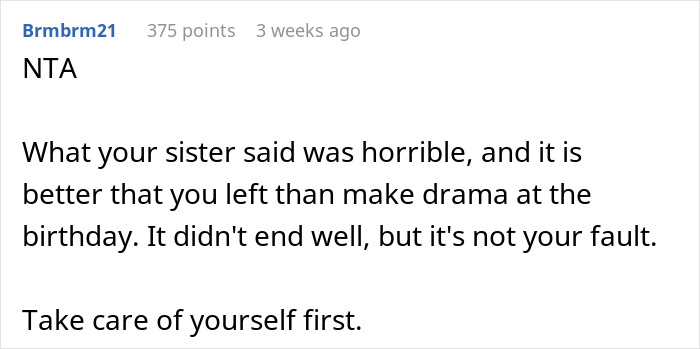

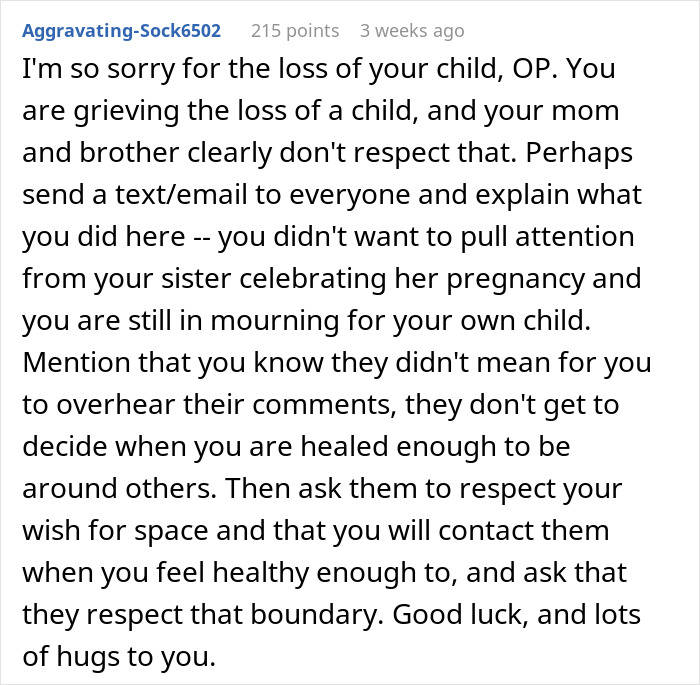

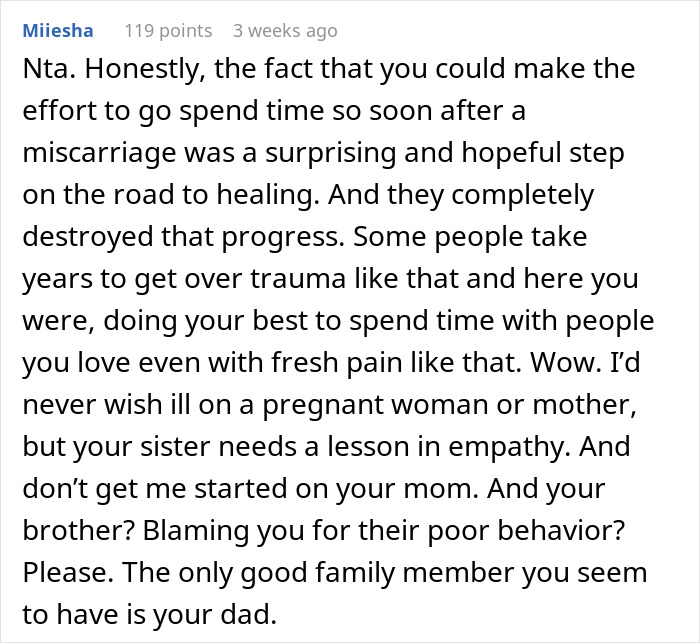

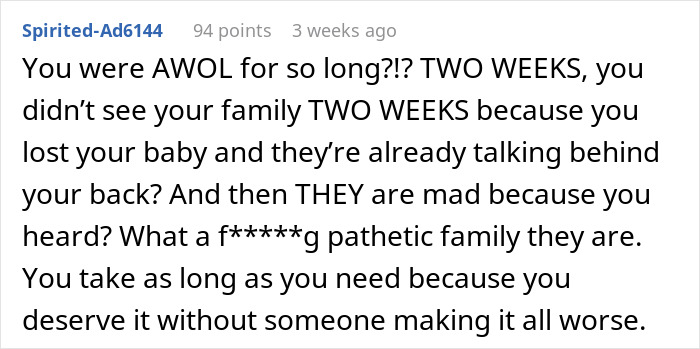


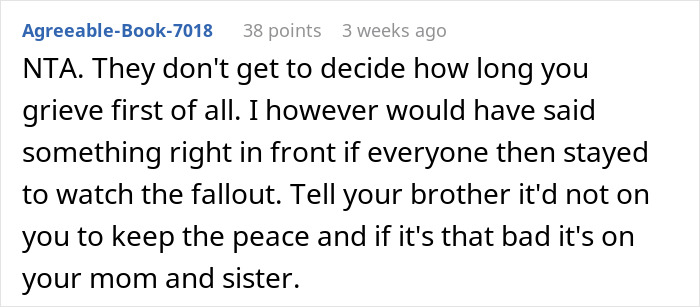
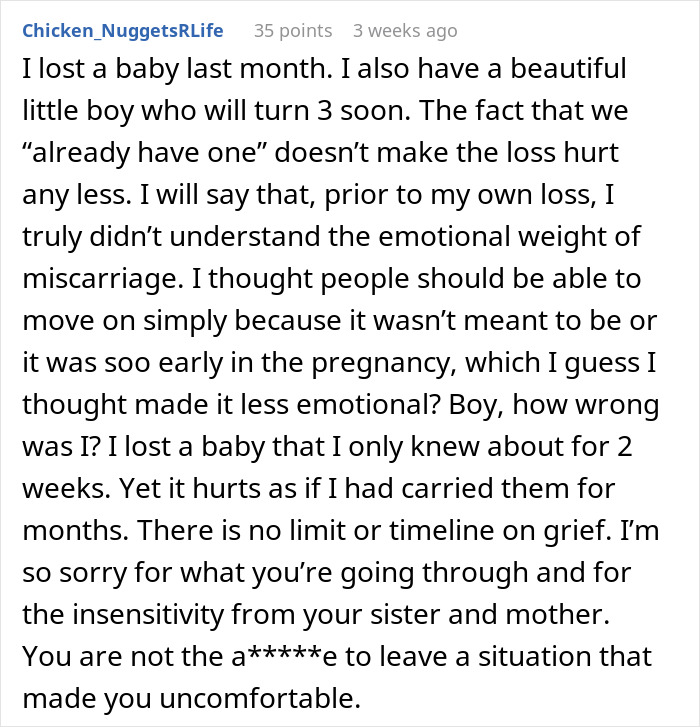
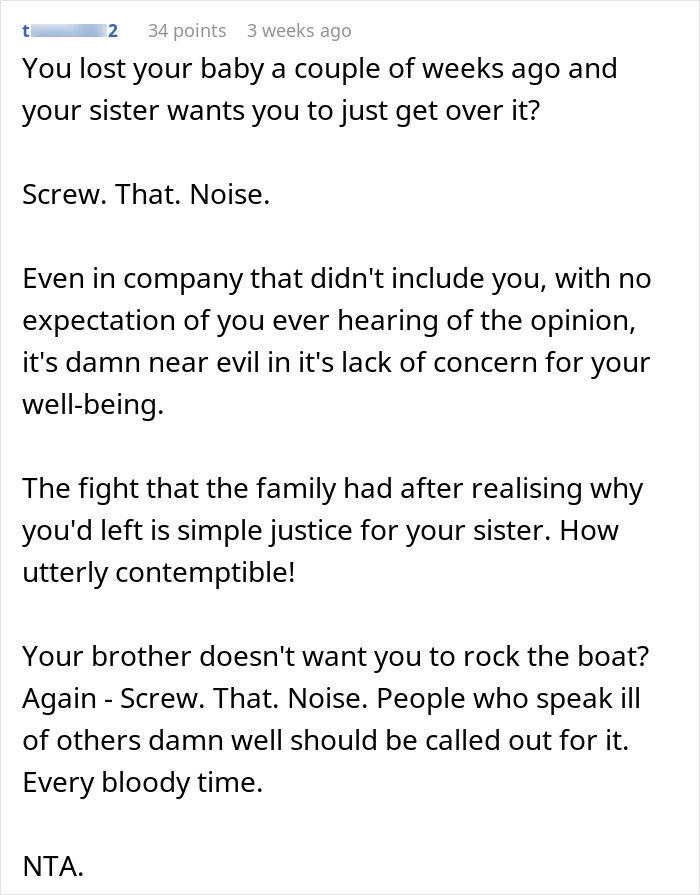
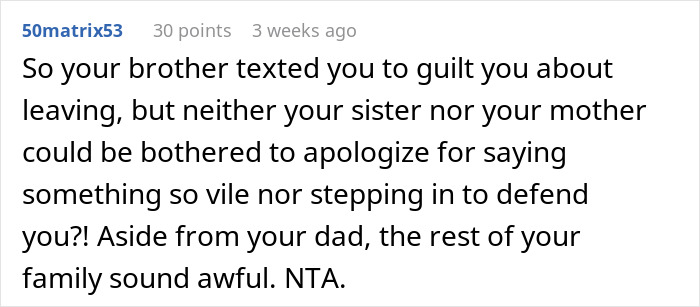
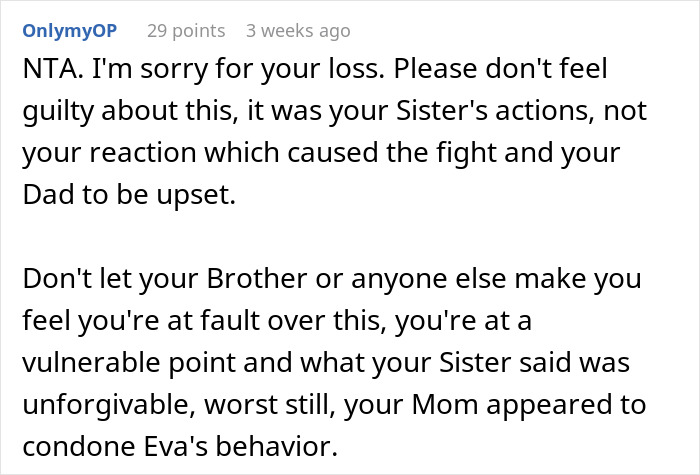
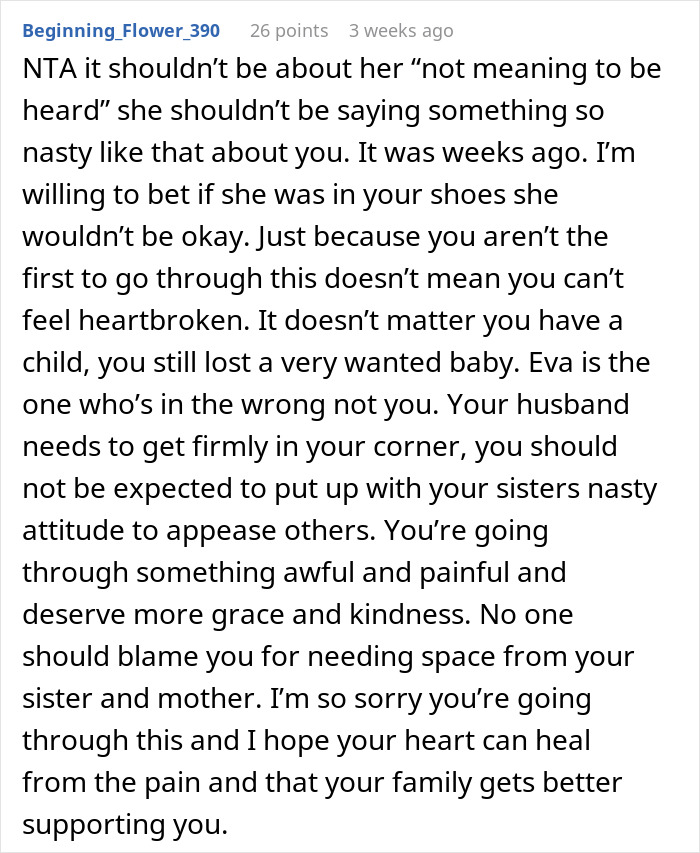
However, some readers were less than empathetic
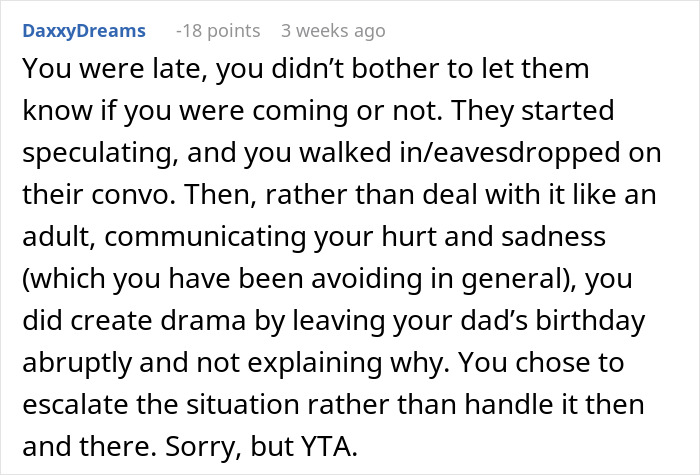




The author later shared a wholesome update about what happened next. She revealed how she reconnected with everyone











Image credits: throwra_71839
Many readers were very happy for the woman and applauded the mature way she handled everything




The post Pregnant Woman Makes Mean Comment About Sister’s Miscarriage, Brings Her To Tears first appeared on Bored Panda.
from Bored Panda https://ift.tt/2kgaq8B
via IFTTT source site : boredpanda